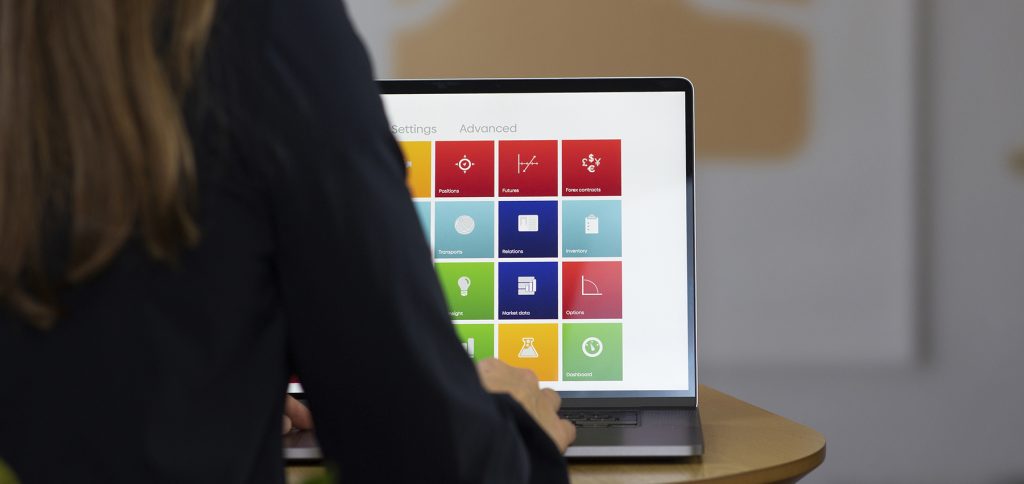Armed with the latest technologies, a vision for practical daily use based on decades of experience, and ever-improved capabilities from a functional, flexibility and a feature point of view – Agiblocks offers unrivaled ROI and cost of ownership for those who implement our CTRM software solution. Moreover, as a vehicle to navigate today’s volatile waters, it can be a means to maximize the ROI of your company as well. Let’s dive into that.
Last week we took a broad approach to CTRM software by talking about the definition, the general application and most notably what sets it apart from ERP and other solutions. CTRM software supports deal capture for physical contracts, commodity derivatives, and currencies, the logistics processes and the financial settlement processes, but also risk management – which is what we’d like to discuss this time around. More specifically, wielding the tools of risk management to improve your position and maximize ROI.
Risk and position management
We’ve previously tackled risk management in Agiblocks, which you can read here – or here, if you would like to know more about are partnership with Tradesparent. For now, we’d like to focus on position management, as it is a tool that can heavily influence ROI.
Position management is all about quantities and timing. Agiblocks provides real-time position management and shows you whether you are long or short on a certain quality for a specific period in time. The quality is important, as not all your commodities are exchangeable. For example, you can be long on fair-fermented cocoa beans from Ghana and short on well-fermented cocoa beans from Ecuador; you cannot replace one with the other. That is why Agiblocks offers ‘position hooks’, a category defined by quality properties visible in a certain time period. All equal qualities for a period are automatically calculated to one position number.
In Agiblocks, you can dive into all underlying contracts and deliveries which will show you the build-up of that particular position. Moreover, the futures position is also visible, informing you immediately if you are properly hedged – or not.
Mark to market
Position management is all about quantities, whereas mark tot market is all about the finances. A mark to market-view provides the valuation of all assets and gives you in addition an unrealized P&F, profit and loss. The mark to market in Agiblocks considers all assets; physical, inventory, derivates such as options, futures and OTC’s, and so on. It allows you to quickly grasp your overall unrealized P&L, grouped by commodity or even by counterparty.
A CTRM tool designed for commodity procurement or trading is based on long/short position management, which enables companies to manage hedge portfolios either intrinsically or through the use of derivatives and/or swaps. A solid CTRM gives you freedom and agility in portfolio valuation and forecasting.
Managing long/short positions, hedge portfolio’s, variable pricing, forward price curves and a value orientation are where CTRM systems live and breathe. For a commodity trading business or even a procurement business a CTRM with the right business fit is a prerequisite for short-term performance and long-term existence.
Agiblocks offers:
- Multiple entities & intercompany trade, multiple trade books
- Physical contract management for bulk, break bulk, containers, parcels
- Flexible position management (origins, specifications, premiums, certifications)
- Mark to Market valuation by position/parities/premiums and cost
- Hedging & derivative management (futures, options, OTC, forex)
- Cross markets (futures/forex) and/or ratio pricing, hedging, hedge allocation
- Logistic management (documentation & freight), physical inventories, sampling
- Financing & collaterals, invoicing, cost accruals, profit & loss: unrealized / realized
- Flexible reporting, document management, quality and trading dashboards
- General Accounting API, IFRS 15 & IFRS 9 compliant

CTRM software supercycle
On the subject of volatility and risk, there’s an interesting read on the ‘CTRM software supercycle’ on ctrmcenter.com. “While pipelines are filling and full, and sales activities run at maximum, the uncertainty around where things may be headed combined with ensuring profits are maximized on one side of the industry and costs contained on the other, means that there may well be a lot of tire kicking and curtailed projects in plat as well. As Q2 ticks away, we will get a better feel for which way things are headed….” (full article here).
As we’ve said before, the commodity trade is a volatile business even in the best of times. Risk management is a continuous loop that takes the route of risk identification, assessment, analysis and reporting to establishing key changes, communication and adaptation – and then back to risk identification. Defining those risks is key, so a dynamic margin management – keeping track of your position and changing course if needed – is an essential part of risk management analytics when dealing with predictability and profitability. That’s why we’ve introduced strong tools for risk management in Agiblocks, including features for OTC contracts, Value at Risk and what-if analysis. Tools that now have a valuable – albeit reluctant – part to play in navigating these waters and weathering a storm for which there really are no reliable long-term forecasts.
Value at Risk in Agiblocks
Value at Risk is a clear and comprehensible measure of the estimated risk of loss for any investment – ‘clear’ meaning fairly easy to use, and ‘estimated’ meaning there are no guarantees. In economics and finance, as well as in life, things are never one hundred percent certain, nor do the most certain outcomes yield the best results.
Value at Risk or VaR provides an estimation (or probability) of the size of the loss for an investment, given variables like asset size, market conditions and time constraints. For an investor, it’s all about probabilities, as the main focus of risk management is usually: ‘what are the odds of losing money?’. VaR is focused on that very presumption. It is typically used to estimate the amount of assets needed to cover potential losses.
Value at risk (VaR) is a popular method for risk measurement. The indication of the level of risk you take with a certain investment can help you decide whether the possible gain is worth the potential maximum loss. VaR can be calculated for either one asset, a portfolio of multiple assets of an entire firm. By calculating VaR the following question can be answered: ‘What can I, with a certain level of confidence, expect to lose in monetary or percentage terms, during a given period of time?’
A VaR calculation consequently consists of three elements: a confidence level, a time period and the expected maximum loss. This could result in an answer resembling the following:
‘With 90 percent confidence, I expect my worst daily loss not to exceed 3.5 percent’.
In our industry, as in most, there are many, many different aspects to deal with all at once – ranging from physical commodities, commodity trading and speculative trading to commodity logistics and finance and risk management – even without the external variables from an inherently volatile market and current or future global events. These – and several other – tools in Agiblocks can help your company better understand its position and adapt wherever necessary, ultimately improving the bottom line.
Agiblocks supports trading as well as financial management from the same source of data and within the same, fully web-based application – accessible anytime, anywhere on any device with a browser. Its modular structure however is also designed to fit any and all company sizes, allowing implementation on the basis of desired necessity – from just the functionality you need to a full end-to-end solution.
Agiblocks CTRM: find out more!
Agiblocks is not just the next generation of CTRM systems, but a solution that truly meets all technical as well as business needs for anyone working in soft or agricultural commodities. That’s why anyone looking for CTRM software for the commodity trade – whether you are a trader, buyer or seller dealing with single or multiple soft and/or agricultural commodities – should look no further. Download our latest whitepaper here.

